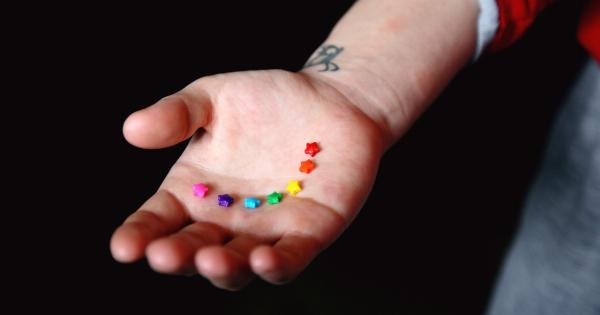School immaturity refers to a student’s inability to meet the social, emotional, and cognitive expectations that are typically associated with their age and grade level.
It is a condition that affects a significant number of students and can have a significant impact on their educational experience.
Identifying School Immaturity
Identifying school immaturity can be a complex task, as it requires a multi-dimensional approach that takes into account various factors. These include:.
- Academic performance: Students who consistently underperform academically compared to their peers may be exhibiting signs of school immaturity.
- Emotional regulation: Difficulty managing emotions, frequent tantrums, or extreme reactions to minor events can indicate school immaturity.
- Social skills: Students who struggle to make and maintain friendships, have trouble following social norms, or exhibit disruptive behavior may be experiencing school immaturity.
- Attention span and impulsivity: Students who have a short attention span, struggle to stay on task, or frequently act impulsively may be showing signs of school immaturity.
- Communication skills: Difficulty expressing thoughts and ideas, using age-appropriate language, or understanding social cues can be indicators of school immaturity.
Evaluating School Immaturity
Once school immaturity is suspected, it is important to conduct a comprehensive evaluation to better understand the underlying causes and develop an appropriate intervention plan.
1. Psychoeducational Assessment
A psychoeducational assessment involves a series of tests and observations to evaluate a student’s cognitive abilities, academic skills, and social-emotional functioning.
This assessment can help identify specific areas of weakness and determine the most effective intervention strategies.
2. Behavioral Observations
Behavioral observations are conducted in the classroom and other relevant settings to gather information about a student’s behavior, social interactions, and overall functioning.
These observations can provide valuable insights into the student’s strengths and challenges in a real-life context.
3. Social-Emotional Assessments
Social-emotional assessments are designed to evaluate a student’s emotional well-being, social skills, and overall mental health.
These assessments may include questionnaires, interviews, and standardized measurements to provide a comprehensive understanding of the student’s emotional and social functioning.
4. Developmental Screening
Developmental screening involves assessing a student’s development in key areas such as language and communication skills, fine and gross motor skills, cognitive abilities, and social-emotional development.
This screening can help identify any developmental delays or difficulties that may be contributing to school immaturity.
Intervention Strategies
Once school immaturity has been identified and evaluated, appropriate intervention strategies can be implemented to support the student’s development and academic progress. These strategies may include:.
1. Individualized Education Plan (IEP)
An IEP is a legally binding document that outlines the special education and related services a student with school immaturity will receive.
It sets specific goals, accommodations, and modifications to ensure the student’s educational needs are met. The IEP is developed collaboratively with input from parents, teachers, and professionals.
2. Social Skills Training
Social skills training programs focus on teaching students the necessary skills to interact effectively with others, develop friendships, and navigate social situations.
These programs typically involve structured activities, role-playing, and coaching to help students improve their social skills.
3. Behavioral Interventions
Behavioral interventions aim to modify and reinforce positive behaviors while reducing problem behaviors. This may involve implementing behavior plans, using token economies, or providing rewards and consequences to encourage desired behaviors.
4. Counseling and Therapy
Individual or group counseling can provide a safe space for students to discuss their emotional challenges and develop coping strategies.
A trained counselor or therapist can help students build resilience, improve emotional regulation, and address any underlying mental health issues.
Conclusion
Identifying and addressing school immaturity is crucial to ensure that students receive the support and interventions they need to succeed academically and socially.
By conducting thorough evaluations and implementing appropriate intervention strategies, educators and professionals can help students overcome the challenges associated with school immaturity and reach their full potential.




























